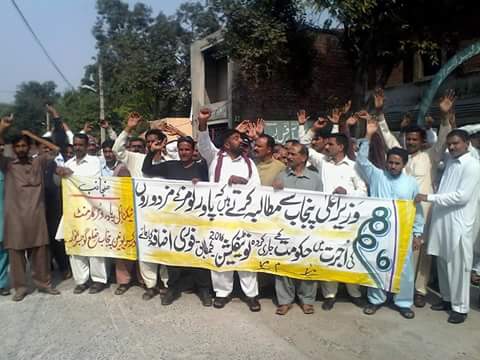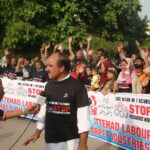14 November, 2016IndustriALL Pakistan affiliate representing carpet workers in Lahore and power loom workers in Gujranwala district have announced success in wage negotiations.
At last some good news from Pakistan in the form of wage increases for carpet and power loom workers. Successful negotiations between employers and Ittehad Labour Union Carpet Industries Pakistan (ILUCIP) resulted in a pay raise of 14 per cent in wages and a 20 per cent raise in the per foot wage rate for carpet industry workers in Lahore.
The wage negotiation was initially started with five factories in July. ILUCIP managed to reach an agreement on 7th November, with all 64 carpet washing and finishing factories to implement the wage increase. Over 12,000 workers will receive the increased wages.
Wages of washing workers who wash 80 square feet of carpet a day will increase from Rs14,000 to Rs16,000 per month, and wages of washing workers who work for eight hours a day will increase from Rs17,000 to Rs19,000 per month. As in the past, the ILUCIP will work to extend the implementation of wage increases to others cities, Karachi and Peshawar.
Similarly, the Textile Power Loom and Garment Workers Union of Punjab (TPGWUP) achieved a wage increase of almost 8 per cent, from Rs 14,800 to around 16,000 for power loom workers in the Gujranwala district. The district labour department facilitated these negotiations.
The TPGWUP held protest demonstrations and applied pressure through government authorities to bring power loom employers to the negotiation table. After hard negotiations on 8 November, the union and employers reached an agreement to implement the wage increase for about 8,000 power loom workers. TPGWUP expressed the hope that it will intensify its effort to implement this wage increase for all 20,000 power loom workers in the district.
While the wage increase is a significant step forward, the union expressed concern that both the carpet and power loom industries employ large numbers of precarious workers. Most of these workers are not registered with statutory social security provisions and Employee Old Age Benefit Institution (EOBI). In coming days the union will work to address issues of precarious work and social security of carpet and power loom workers.




